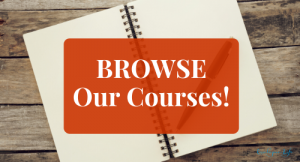
Do you want to learn how to write a life story? Are you a writer by nature? Some people sing. Some people dance. Some people love to cook, or drive fancy cars, or collect valuable coins, or water ski. Me? I write. Here are some of the tips I’ve picked up from starting as a Hollywood entertainment writer who has shifted into professionally writing biography, memoir, and family history books.
This is a guest post by Ray Richmond, former Hollywood entertainment journalist turned biographer.
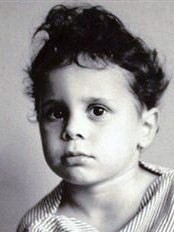
Born with the Writing Bug
If I recall correctly, I was writing before I was talking. I was into recording things, conversations and observations mostly. Back at the beginning, what I did might be called quasi-plagiarism. I would notice what others wrote, change some things around, add a few of my own twists, and claim it as my own.
In elementary school, my report cards weren’t terribly impressive. I’d get C’s in general, but every semester, I’d look over at written language and there would be an A. Every. Single. Time.
“This is what you should be doing with your life after you grow up,” I recall my fifth-grade teacher, Mrs. Schwaber, telling me. “You’ll never be an astronaut or a scientist. But you know how to write, kid. It’s a gift. Use it.”
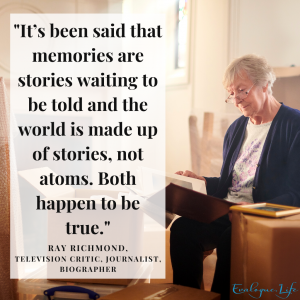
To this day, I practice what Mrs. Schwaber told me to do. Except to stop dreaming. She thought I did too much of that. I still do.
Once it became clear to me that athletics would have to wait for my next life – I think it was my little league coach Mr. Dugan who memorably said to me, “You can’t hit, you can’t run and you can’t field – what you’re good at, Ray, is sitting on the bench,” – I decided to give journalism a whirl. I fell into covering entertainment at a series of newspapers in Los Angeles and built a name as a television critic for a quarter-century.
Related article: How to Storyboard True-life Tales
How to Write a Life Story that’s Entertaining
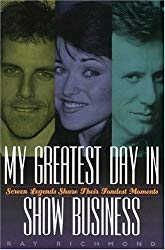 What does a television critic do? Pretty much what it sounds like. You get paid to watch TV. Well, okay, not just watch it but critique its shows, films, documentaries, performances and productions.
What does a television critic do? Pretty much what it sounds like. You get paid to watch TV. Well, okay, not just watch it but critique its shows, films, documentaries, performances and productions.
In other words, recalling those times when my mother said to me, “Stop watching that TV! You’ll never amount to anything that way!” I had proved her wrong.
It was a humbling job, to be sure.
Like the time in 1992 when Roseanne (yes, that Roseanne) objected to my review of her then-husband Tom Arnold’s ABC situation comedy “The Jackie Thomas Show.” She faxed me a note that included a profane word about a certain part of my anatomy, making me briefly infamous as, “the critic dissed by Roseanne.”
But I digress.
The thing I learned is to structure the story to create something entertaining. It took only a sentence or two to convey what I thought of a TV show while giving the thumbs-up or thumbs-down. But I was always careful to craft the review as if I were telling a story. Because I was.
Related article: The Joy of Telling Stories
How to Write a Life Story – Focus More on Storytelling
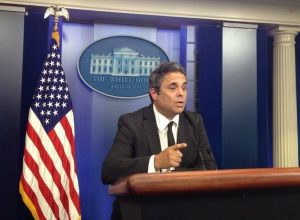
As a journalist, no matter what kind of story it is you’re writing, you need to get the facts in there pretty high up. When I was in journalism school, my professors had harped on “The 5 W’s and the H” (Who, What, When, Where, Why and How) and to write in an inverted pyramid style, illustrating how information should be prioritized and structured in a text.
When I wrote more feature-y material, the slavish devotion to getting all of that information into the “lede” (first paragraph or two) proved less important. What was the same, and what remains so, is that you need to hook the reader early on and make them care about the person/people and subject(s) you’re writing about.
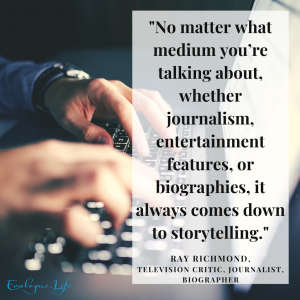
Related article: Find the angle to tell your life story. Everyone has one!
No matter what medium you’re talking about, whether journalism, entertainment features, or biographies, it always comes down to storytelling. It’s been said that memories are stories waiting to be told and the world is made up of stories, not atoms. Both happen to be true.
In journalism, the most important skill is an ability to put my interview subjects at ease. It wasn’t something I did knowingly but rather by instinct. Even guarded Hollywood stars seemed to open up to me and tell me things they had no intention of revealing. It comes down to having probing, personal, informal chats with even the most famed celebrities – treating them as people rather than commodities.
Related article: How to write an autobiography – an A-Z primer

8 Differences Between Journalism and Life stories
I’ve nonetheless found there are key differences that I’ve learned between writing stories for a mass audience and crafting them for a decidedly smaller, more targeted and more specialized family history reader base.
1. The connections are deeper: I ultimately grew bored with entertainment and TV critique. It wasn’t a matter of my becoming jaded, I don’t believe; I simply craved one-on-one connections with human beings who weren’t necessarily trying to sell me something, even if that something was simply themselves.
2. It’s about love: In my evolution from journalist to family historian over the past few years it became quickly apparent that one need be significantly more patient, gentle, and delicate – in a word, more loving – when capturing oral history interviews with the subject or family of an intimate personal narrative.
3. It’s not really interviewing: In fact, I wouldn’t even call it interviewing, but interacting. The most effective technique when dealing with regular folks who want to tell their story is to treat them as simultaneously the most important people in the world and the folks next-door. It’s about respect.
4. The power of story matters more: As a family historian, I have the greatest and most solemn obligation a writer can have. I’m being invited into someone’s life to potentially ask the most private and privileged questions about the most sensitive areas of their past and present. I am also tasked with creating a definitive family chronicle.
Related article: Oral History Interview Questions and Audio Resources
5. It’s an honor: It’s hardly a natural situation when you think about it. I’m expecting someone I don’t know terribly well (if at all) to confide things they may not tell their closest friends and family members and trust me with feelings they might still be getting in touch with themselves. I am mindful of the trust being accorded me; listening to stories is a singular honor.
6. The pressure is of a different sort: Whereas as a journalist one is consumed with deadline pressure and the need to tell the story with great skill, speed and consequence, the only concern while shaping a family narrative is to convey familial stories with the proper integrity, accuracy and (most importantly) humanity.
7. The responsibility is to the individual: And unlike in reporting where the most important responsibility is to the facts, when relating a family’s saga, the sole obligation is to the person or persons whose story is being told.
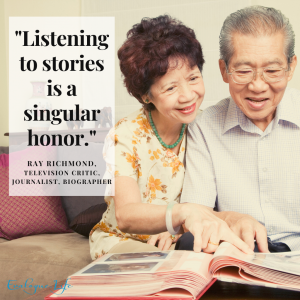
8. We become like family: As these unique kind of storytellers, we become extended members of a family and accorded esteem commensurate with that exalted position. In that sense, it is a writing job like no other. It is also, in so many ways, the most gratifying and nourishing literary endeavor of all.
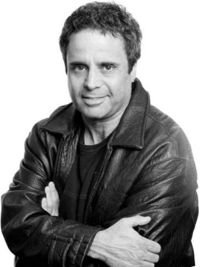 Ray Richmond is the founder and president of Family Sleuth Memoirs a company based in Southern California that crafts personal biographies and family histories. He is also an award-winning journalist who worked as a television critic, columnist and reporter for a number of publications including Daily Variety, The Hollywood Reporter and The Los Angeles Daily News.
Ray Richmond is the founder and president of Family Sleuth Memoirs a company based in Southern California that crafts personal biographies and family histories. He is also an award-winning journalist who worked as a television critic, columnist and reporter for a number of publications including Daily Variety, The Hollywood Reporter and The Los Angeles Daily News.
Thank you to Ray Richmond for writing this guest article on the Evalogue.Life site. Your sage thoughts on how to write a life story are spot-on!
Do a family history interview

Sign up and we will email you a free, printable download of our mini-course to conduct a great oral history interview. You will be done in a week or less.


